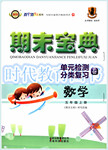题目内容
---How could you ________ your friend so easily?
---She is the kind of person who ________ in a crowd.
- A.pick out;stands out
- B.make out;stands for
- C.take out;stands by
- D.bring out;stands aside
考查动词短语辨析。pick out意思是“认出,辨别出”;stand out意思是“突出”。句意:——你是怎么在人群中轻松的认出你的朋友来的?——她是那种在人群中很突出的人。B项分别表示“编造,虚构,组成”和“代表”;C项分别意为“拿出”和“支持”;D项分别意为“生产,出版”和“站开,躲开”。

 期末宝典单元检测分类复习卷系列答案
期末宝典单元检测分类复习卷系列答案Peanuts to This
Proudly reading my words, I glanced around the room, only to find my classmates bearing big smiles on their faces and tears in their eyes. Confused, I glanced toward my stone-faced teacher. Having no choice, I slowly raised the report I had slaved over, hoping to hide myself. “What could be causing everyone to act this way?”
Quickly, I flashed back to the day Miss Lancelot gave me the task. This was the first real talk I received in my new school. It seemed simple: go on the Internet and find information about a man named George Washington. Since my idea of history came from an ancient teacher in my home country, I had never heard of that name before. As I searched the name of this fellow, it became evident that there were two people bearing the same name who looked completely different! One invented hundreds of uses for peanuts, while the other led some sort of army across America. I stared at the screen, wondering which one my teacher meant. I called my grandfather for a golden piece of advice; flip (掷) a coin. Heads—the commander, and tails—the peanuts guy. Ah! Tails, my report would be about the great man who invented peanut butter, George Washington Carver.
Weeks later, standing before this unfriendly mass, I was totally lost. Oh well, I lowered the paper and sat down at my desk, burning to find out what I had done wrong. As a classmate began his report, it all became clear, “My report is on George Washington, the man who started the American Revolution.” The whole world became quiet! How could I know that she meant that George Washington?
Obviously, my grade was awful. Heartbroken but fearless, I decided to turn this around. I talked to Miss Lancelot, but she insisted: No re-dos; no new grade. I felt that the punishment was not justified, and I believed I deserved a second chance. Consequently, I threw myself heartily into my work for the rest of the school year. Ten months later, that chance unfolded as I found myself sitting in the headmaster’s office with my grandfather, now having an entirely different conversation. I smiled and flashed back to the embarrassing moment at the beginning of the year as the headmaster informed me of my option to skip the sixth grade. Justice is sweet!
1.What did the author’s classmates think about his report?
|
A.Controversial. |
B.Ridiculous. |
C.Boring. |
D.Puzzling. |
2.Why was the author confused about the task?
|
A.He was unfamiliar with American history. |
|
B.He followed the advice and flipped a coin. |
|
C.He forgot his teacher’s instruction. |
|
D.He was new at the school. |
3.The underlined word “burning” in Para. 3 probably means _______.
|
A.annoyed |
B.ashamed |
C.ready |
D.eager |
4.In the end, the author turned things around _______.
|
A.by redoing his task |
|
B.through his own efforts |
|
C.with the help of his grandfather |
|
D.under the guidance of his headmaster |